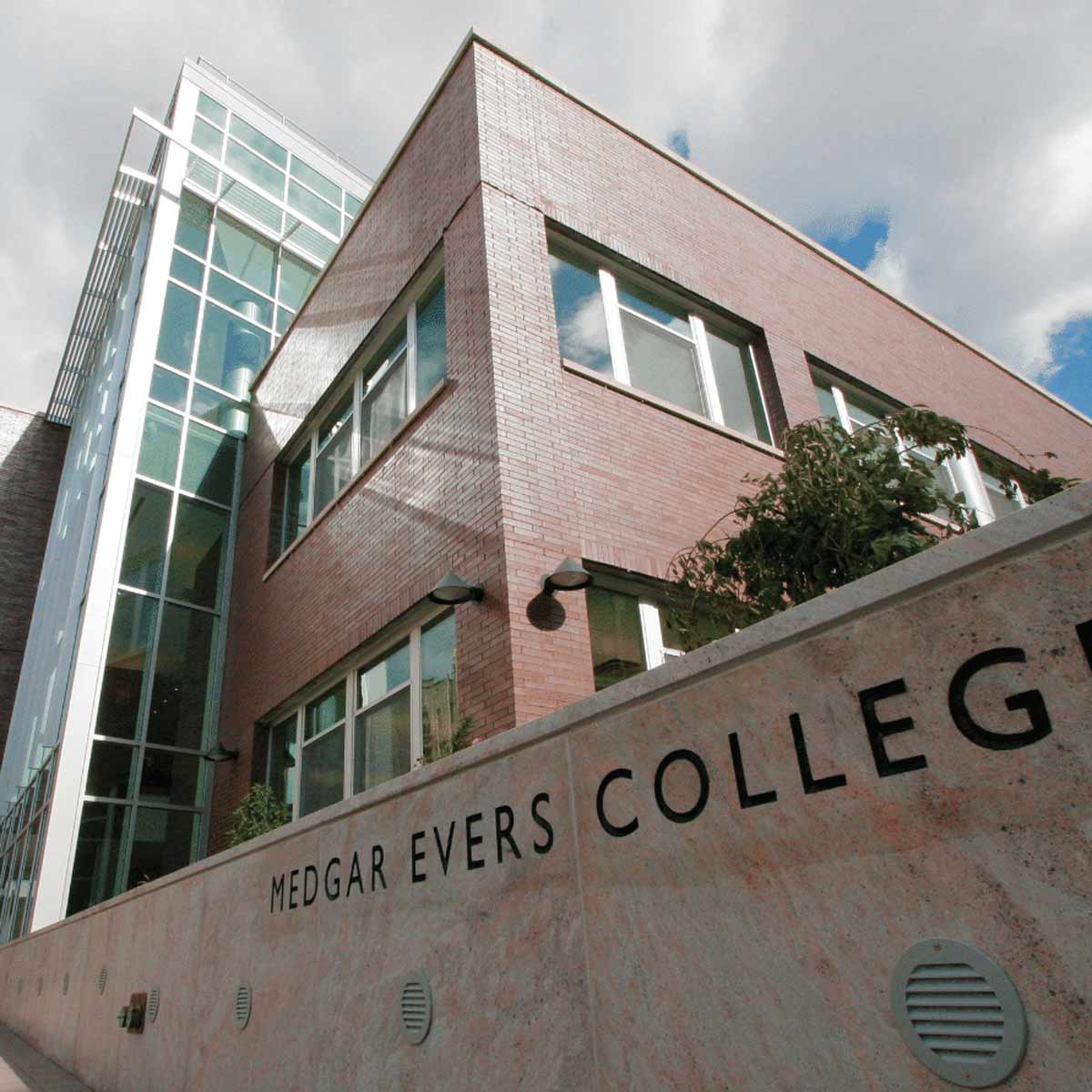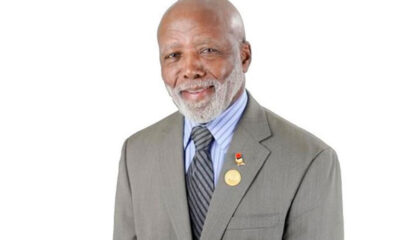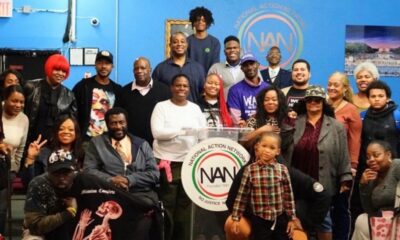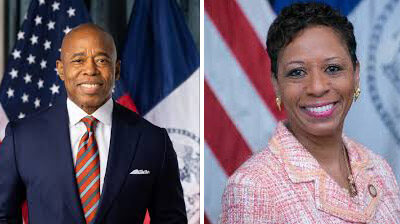Education
Brooklyn NAACP 2024-Black Brooklyn Agenda Gathering

Open to the public: Sat, Jan. 6th, 2024 Medgar Evers College from 1 pm-4 pm
By Nayaba Arinde
Editor-at-Large
New Year resolutions notwithstanding, there is a community call to come up with a strategic 2024 Black Brooklyn Agenda.
With so many Black Brooklyn politicos in top elected positions – Attorney General Tish James, Mayor Eric Adams, Public Advocate Jumaane Williams, Congress Members Hakeem Jeffries and Yvette Clarke, and a host of state assembly and senate members, and City Councilmembers – the borough should be in pole position to formulate a substantial all- encompassing Black Brooklyn agenda for 2024.
There’s much to focus on. Long-term residents are concerned with seemingly unfettered developers throwing up ultra-expensive condos on many Brooklyn streets, further leading to unbridled gentrification; despite City-promoted stats – there’s still the entrenched perception of unsafe streets, the home-budget-assaulting increased cost of living, the eternal housing crisis, the lack of real, average-Black income-related affordable housing, the massive impact of the migrant crisis, the adverse effects of youth unemployment, and the unrelenting variety of health care and mental health care issues.
Public Advocate Jumaane Williams told Our Time Press, “Black communities in New York City continue to face some of the most direct effects of compounding crises in our city, many rooted in affordability. With rents skyrocketing and housing quality deteriorating, housing remains a top priority for communities of more color and the people elected to serve them. The same communities are facing complex challenges in public safety- trapped between very real street violence and over-policing tactics, which often fail to combat this violence. Recognizing the needs we face, the complexity of the issues, and the political courage to address them are top priorities for Black Brooklyn, and for my office, in the coming year.”
Having a Black agenda and controlling that agenda is one of the topics that Brooklynites will grapple with as 2024 kicks off.
It is appropriate then that the Brooklyn NAACP is hosting their 2024 Black Brooklyn Agenda gathering on Saturday, January 6th, 2024, at Medgar Evers College, 1 pm-4 pm.
For weeks, the NAACP has called on the community to bring their “collective wisdom and innovative ideas, share thoughts and insights.” Because their input will make this a “pivotal gathering where community voices converge to shape the future of Black Brooklyn. This assembly is more than a meeting; it’s a collaborative space where participants receive training on the New York City and New York State legislative and budget processes and actively contribute to developing an agenda that prioritizes the needs and aspirations of Black Brooklyn residents.”
In order to form a relevant and representative agenda that addresses the requirements and demands of the community, the objective of the civil rights organization is to seek Black Brooklynite’s “valuable input to understand the pressing issues, legislative needs, and budget priorities that should be addressed to better support Black residents in Brooklyn.”
A number of new laws hit the books as of the first of January, such as the minimum wage being raised to $16 per hour in New York City.
Once again, Gov. Kathy Hochul vetoed the Wrongful Death Act, denying grieving families the ability to claim damages for the loss of loved ones. She signed the Clean Slate, which allowed certain criminal records to be sealed years after an individual is sentenced or released from incarceration, so long as the individual was not “subsequently convicted of an additional criminal act.”
As Gov. Hochul prepares for her January 9th State of the State address, she touted her “Consumer Protection & Affordability Agenda (CPAA) – one that combats the effects of illness, disability, unfair business practices, and low wages.”
About the CPAA, an optimistic Attorney General, Letitia James, said, “From taking on the companies responsible for the opioid crisis to stopping price gouging, predatory debt collectors, and other deceptive business practices, we have taken on countless companies for harming New Yorkers. While we have stopped the most egregious actors, this new bill will expand and strengthen our ability to stop unfair and abusive business practices that hurt too many people.”
Last month, consistent community pressure led to Gov. Hochul signing the Reparations Bill, which just simply establishes a commission on reparations remedies.
“With the establishment of this commission, it will give us the chance to review and look at the history of African Americans in New York State,” said the President of the NAACP New York State Conference, Dr. Hazel N. Dukes. “And when the report is done, it will give us the necessary tools – where we should go for economic growth, for quality health, equity in education, job training, job creation, housing – and many more things.”
Echoing the sentiment of many around the state, Brooklyn NAACP President L. Joy Williams said, “This step is significant but just one step.”
Whilst calling it “groundbreaking legislation,” noting “that our journey is far from complete,” the Brooklyn NAACP said that they are “resolutely committed to staying actively involved throughout the lifespan of this commission – from its initial meetings and deliberations to its formulation of recommendations, and most critically, in our continued advocacy for the legislature to act upon the commission’s recommendations.”
Before the December bill signing, City Councilman Charles Barron was affronted by the removal from his original reparations bill of community input via long-time reparations advocates such as the National Coalition of Blacks for Reparations in America, the December 12th Movement, and Ron Daniels’ Institute of the Black World. “Those who have fought hard for reparations should be part of any decision-making apparatus,” he said. To that end, now-former City Councilmember Barron told Our Time Press, “In early 2024, we will be organizing a People’s Commission to make the state commission do the right thing for the Blacks whose blood, sweat, and tears built this capitalist economy in New York state.”
It is a presidential election year. The cycle begins. The political horse-trading, terse banter, and convoluted commercial axioms begin. The national hankering after the Black vote will probably be on steroids. There is also the congressional redistricting issue on the table, and eyes are looking at next year’s mayoral election, too.
Mr. Barron said that Black people in 2024 should simply “vote their interest as a collective. We have to stop looking for the lesser of evils, and instead unite around what is good for us. In 2024, Black Brooklynites must continue securing and promoting our communities.”
The Black vote should not come cheap. Sponsored by the Department of Public Administration, Medgar Evers College, CUNY, the Brooklyn NAACP states that Saturday’s event aims to provide in-depth training in order for locals to “understand the legislative and budgetary frameworks that shape our city and state, empowering you to advocate effectively for our community.”
All to “review insights, discuss priorities, and formulate actionable agenda items…by passionate individuals dedicated to making a difference in Black Brooklyn.”
The power of the people is so much greater than the people in power is the old new adage, so flexing a collective muscle is the move.
Demands are all for naught if there is no direct community-driven pressure for legislative changes, representative public policy, and budget allocations for city, state, and federal community-focus agencies to “significantly impact and improve the lives of Black people in Brooklyn.”













